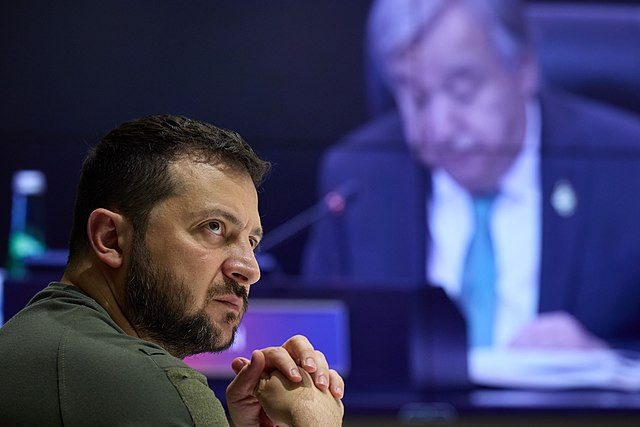Ukraine launched a large-scale missile and drone attack on Russian military and industrial facilities early Tuesday, striking deep into Russian territory and prompting swift responses from Russian officials. The barrage, which targeted sites including chemical plants, oil refineries, and arms depots, represents a significant escalation in the ongoing conflict.
Saratov Governor Roman Busargin described the attack as "massive," confirming that an industrial enterprise in Engels had been hit by a drone. Classes in Saratov and Engels were moved online as a precaution. Explosions were reported at chemical plants in Tula and Bryansk, while a drone strike in Tatarstan ignited a gas storage tank near Kazan, sending flames and thick smoke into the sky.
Russia's Defense Ministry claimed to have intercepted multiple missiles supplied by the U.S. and U.K., including six ATACMS and six Storm Shadow cruise missiles. Ukrainian forces, however, celebrated the strikes as a "successful" operation, with their Unmanned Systems Forces confirming hits on key military production sites. "Drones successfully distracted Russian air defenses, paving the way for missiles that hit the main targets," a statement from the Ukrainian military read.
One of the largest Ukrainian drone and missile attacks on Russian industrial facilities, with hits in Kazan, Samara, Engels and Bryansk overnight. pic.twitter.com/izUkweajLG — Yaroslav Trofimov (@yarotrof) January 14, 2025
A source within Ukraine's SBU security services highlighted the strategic significance of the operation. "Each damaged ammunition depot, oil refinery, or chemical plant is a painful blow to Russia's ability to wage war in Ukraine," the source said. A Ukrainian blogger described the attacks as "probably one of the most effective" of the war, reaching locations rarely struck before.
In response to the attacks, Russia temporarily halted operations at nine airports across central and western regions, including those near Kazan and Saratov. The Russian government also imposed flight restrictions and announced investigations into the extent of the damage.
The strikes come amid heightened tensions following recent statements by Russian President Vladimir Putin. Putin has blamed the escalation on the provision of advanced Western weaponry to Ukraine, warning that Moscow could retaliate against these nations. He referred to the conflict as approaching "global proportions" and cited the use of hypersonic missiles by Russia in response to Ukraine's growing capabilities.
The timing of the attack is notable as President-elect Donald Trump prepares to assume office. Trump has called for a ceasefire and renewed negotiations to bring an end to the war, raising questions about Washington's long-term support for Ukraine. The U.S. has been a key supplier of military aid, including the advanced missiles reportedly used in this operation.
Ukraine's strikes also coincide with challenges along its own front lines. In the eastern Donetsk region, Ukrainian forces have faced heavy Russian artillery fire, and authorities in Pokrovsk have urged remaining residents to evacuate. Meanwhile, Ukrainian air defenses reportedly intercepted 58 Iranian-designed drones launched by Russia, highlighting the continued intensity of the conflict on multiple fronts.
The war, now in its third year, has resulted in tens of thousands of casualties and displaced millions. It has also strained relations between Moscow and the West to levels not seen since the Cuban Missile Crisis. Tuesday's attacks underscore Ukraine's strategy to extend its reach into Russian territory, disrupting military supply chains and industrial infrastructure in retaliation for repeated Russian strikes on Ukraine's energy grid.




